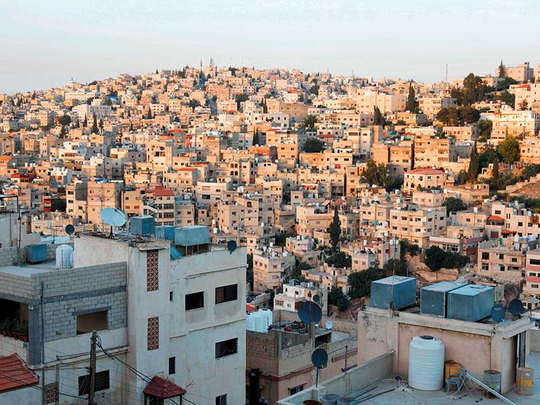
Amman: Jordan will rely on cutting excess spending rather than raising taxes to balance its budget, the country’s new prime minister said Tuesday, weeks after protests against a planned income-tax law toppled his predecessor and drew pledges of help from the Gulf.
Jordan remains committed to a reform program agreed with the International Monetary Fund and plans to cut public-sector spending by 150 million dinars (Dh776 million, $211 million) this year, Omar Al Razzaz told a news conference.
“We cannot keep relying on imposing taxes whenever there is a budget deficit, a decline in revenue or when there is weak economic growth. The priority should be for cutting public spending,” he said. “We have to understand that we’re going through difficult economic conditions.”
Jordan has for decades relied on foreign aid from the US and oil-rich Gulf nations to prop up its economy, and the influx of 1.5 million Iraqi and Syrian refugees in recent years has further strained the country’s finances.
IMF loan
In 2016, it secured a $723 million loan from the IMF to support a three-year program of reforms aimed at cutting the fiscal deficit and stabilising the economy while protecting the poor. As financial aid from Gulf countries dwindled over the past year, however, increases in fuel and electricity prices and planned tax rises have been met with growing public anger.
Former Prime Minister Hani Al Mulki resigned this month after thousands of people took to the streets in protest. Soon after he was named, Razzaz, a Harvard-educated former World Bank official, announced that the tax bill would be withdrawn for review. It was not clear until Tuesday what other changes his government planned to make.
Part of an IMF-backed economic reform program, the law had been intended to improve tax collection, curb evasion and boost revenue, with a target of 300 million dinars ($423 million) annually. Offering Jordan’s government some breathing space, Saudi Arabia and two other Gulf nations last week pledged $2.5 billion to help support Jordan’s economy.
The aid will include a deposit in the Jordanian central bank, annual support for the government’s budget for five years and other assistance.












